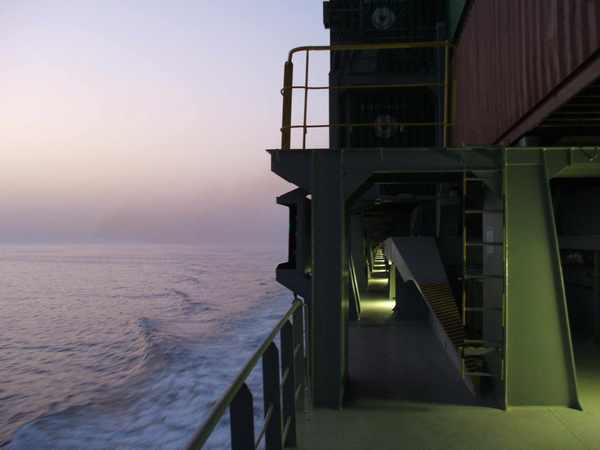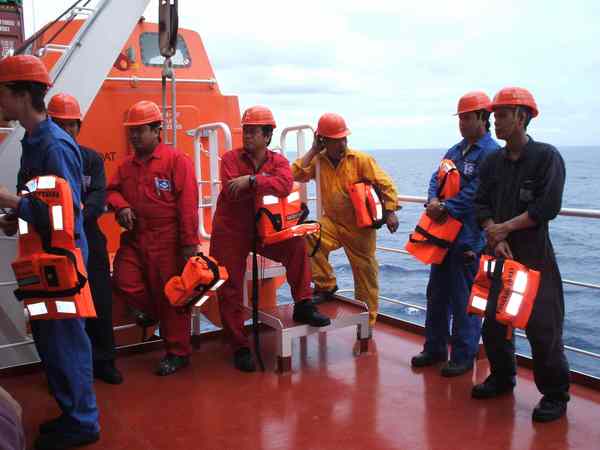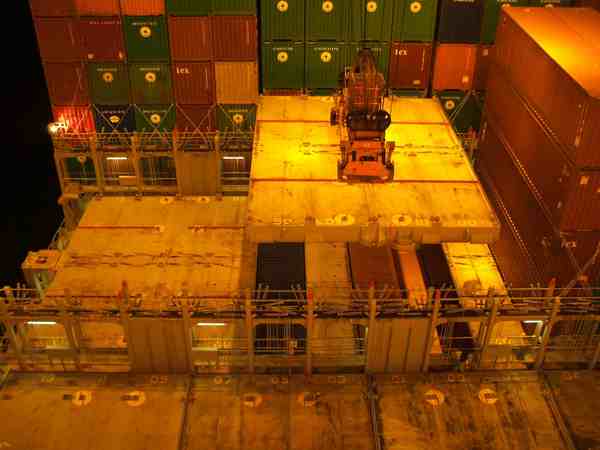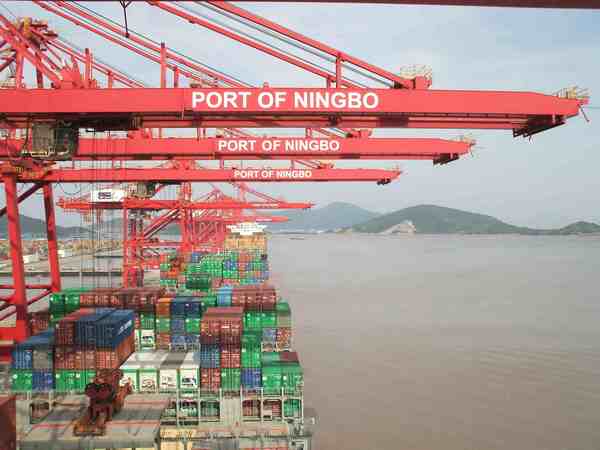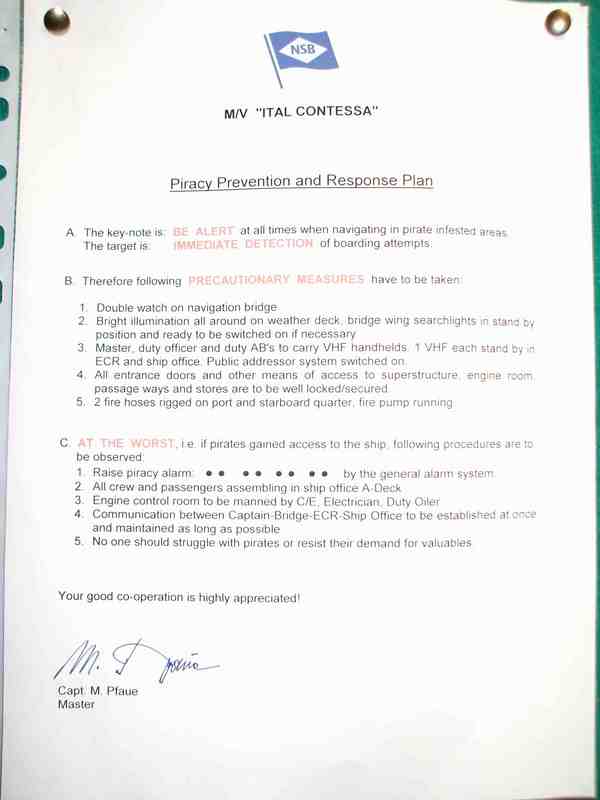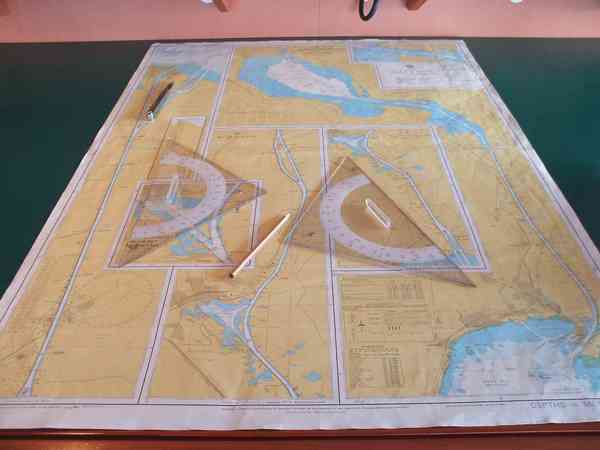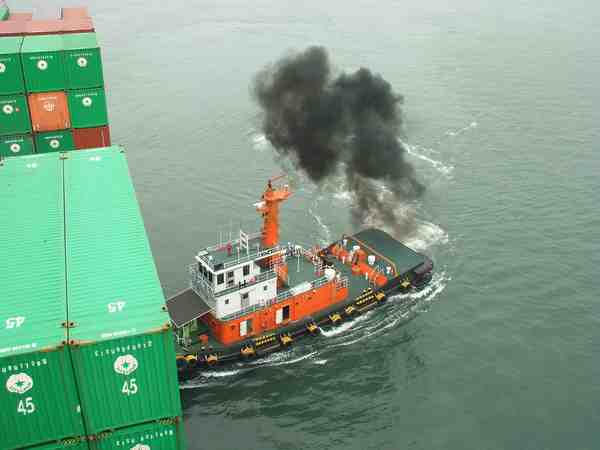April 28, 2009
Recommencing battle
After the speculative realism conference on Friday and ahead of the hardcore continuum discussion at UEL tomorrow, check out my very Harmanised call for critical overreach, over at the Fact website.
The assasination of J. G. Ballard

My tribute to Ballard, written after reading one middlebrow hack appropriation too many, is now up at the ever-excellent Ballardian.
I found myself sharing Sukdehv Sandhu's bemusement: "It is hard ... not to raise an eyebrow at the column inches and airtime given over to Ballard's passing. Frankly, it seems hypocritical. His values were far removed from those of the cultural gatekeepers that have posthumously embraced him: he was a natural non-conformist whose work is anti-humanist, perverse, violent."
Far better, for Ballard still to be condemned as
evil than that he is smugly assimilated into Britlit.
April 22, 2009
Transnational limbo
A couple of fascinating responses to the container post (in addition to Owen's remarks, of course - speaking of whom, to complete the circuit described in this post: would you believe that I've actually been working on a post on Pakula's Parallax View) for the past week or so?)
First up on the containers, Frieze's Dan Fox(who also took the photos which illustrate this post):
I travelled on a container ship from Thamesport, via Suez, to Shanghai this time last year (roughly when the Somalian pirates decided it was time to get busy in the Gulf of Aden). It was a pretty mindblowing trip. The whole area around Thamesport - the Isle of Grain - is particularly spooky. I'm sure, living in Kent, you've explored that area. As you get closer, the landscape empties out and flattens. The roads are quite narrow country roads, but full of big lorries pelting along to and from the port. As you get closer, the first thing you see is a huge power station at the edge of the port, and then, in the distance, the cranes come into view. I have to confess I arrived at the port at about 7AM feeling pretty nervous, so I was maybe a little too preoccupied to take it all in, however, the landscape reminded me of the area around Dungeness - a mixture of small villages, which don't seem to have any buildings older than the 1930s at the earliest (though I'm possibly wrong about that), wildlife reserves and military establishments.
- Thamesport is, of course, a high security zone - there are thorough passport and ID checks at the gates, and I wasn't allowed to proceed any further until the captain of the ship I was travelling on had confirmed I was expected. You're driven everywhere in container ports - there's no idle wandering about - but this is principally a safety measure. There are lorries and trucks belting along, stacked with with containers, and the cranes shift these heavy containers at an alarming speed. Deaths from falling containers or from being run-over are not unusual.
- The experience of docking in port, and watching the sheer speed at which containers are unloaded and loaded is quite something - it's fast and dangerous. Money is everything - the stevedores' cranes start lifting containers literally the minute the ship has moored and tied its ropes to the quayside, and the ship leaves the moment they stop. Fuel costs are minimized at any given opportunity - three types of fuel are used, at three different degrees of filthiness. The cheapest, and dirtiest one, is used in open sea. You can see the sheen from fuel discharges on the water's surface everywhere on shipping routes. If there is a snag with the docking schedules - a delay, or a ship arriving too early, then often the ship's captain will declare that the ship is 'not under command', which isn't quite as dramatic as it sounds, and involves the engines being switched off and the ship drifting for a few hours in order to regulate its schedule. (It's quite something to be drifting on a giant, but silent, container ship in the middle of the ocean at night, as happened to me in the East China Sea.)
- Most industrial ports these days are situated far outside the cities they purport to be located in (for instance, Shanghai's deep water container port is Yangshan - which is situated on an island 30km off the coast, and about an hour or so drive from Shanghai itself - it's connected to the mainland by the Donghai Bridge, third longest bridge in the world) and ships are only docked for about 15-20 hours at most, which means that the merchant seamen rarely get enough shore leave time to escape the port terminals. As such they live in a kind of transnational limbo (6-7 months at a time is the usual length of a shift - I think it's a bit less for the officer class), never really officially arriving in any country unless they have a rare long stop over or have errands to run outside the ports. The crew on the ship I travelled on were all Filipino, and the officers German. I only saw crew members go ashore once on my trip, in Kaohsiung, Taiwan, which is situated, unusually, just a very short cab ride from the city centre.
- It was fascinating to see how the two ports I saw in China compared to Thamesport. I stopped at Ningbo (allegedly, according to the sailors on the ship I was on, a Triad controlled port), and Shanghai/Yangshan, and this time last year at least, I got the impression that China was a country in a hurry. That may well have changed, and I wonder how they seem this year. The thing that really hits home, travelling by container ship, is just how - and this might seem like an obvious thing to say - bound we are to the physicality and materiality of trade. The media allows to believe that we are all somehow living in a wireless, broadband, endlessly twittering, blogging world of instantaneous, at-the-touch-of-a-button, smiling, cute-electronica-soundtracked communication and trade, yet seeing hundreds of these vast container ships shifting boxes from one place to another, many filled with the hardware that allows us to twitter and blog our lives away, is quite something. (The ship I was on was over 300 metres long. One day I timed myself walking, point-to-point all the way around, which is the kind of thing you begin to get worryingly into doing after 3 weeks at sea without setting foot on shore, and at a good, steady pace, it took me 10 minutes to walk its entire circumference.) The lumpen materiality of our systems takes on a renewed significance. The Somalian pirates have identified this - the need to physically transport things means that by controlling the narrow bottleneck that is the Gulf of Aden, you can potentially choke east-west trade. Without the Suez route, trade with South East Asia is in massive jeopardy - or at least will become increasingly expensive as shipping insurance goes up, or as shipping companies choose to reroute their vessels far lengthier distances (I'm by no means an expert, but I'd say this is unlikely, as I got the impression from the crew I met that shipping companies care about the bottom line more than the safety of their crews).
Next up The Wire (magazine's) Derek Walmsley:
- I see that people have pointed out to you that Series Two of The Wire
is based in a dock. The scale of it was awesome (they actually filmed
in a working dock), completely dwarfing any human presence. Worth checking the titles:
- Whereas if you watch any dock footage of London from the 30s and 40s,
one gets more or less the opposite impression... you're astonished to see the banks of the river are often just that, river banks, no massive cranes or concrete bays.... worth checking those out if you're at the BFI mediatheque at any point, they have films of London from that era.
Douglas Murphy adds:
-
I suppose this is a bit late (missing the boat, perhaps?), but when I was doing my MA we read this book, a sort of post-Deleuzo-Koolhaasian examination of various 'free zones' across the world, places where immaterial capital is forced to become material, such as the tip of southern Spain where all the Moroccans legally/illegally work in tomato farms, the Indian techno-districts, the North Korean holiday resort for South Koreans, etc etc. I must say that it's not brilliant, it has quite a generic architecture-theory style, but there is a pretty interesting chapter on containerisation and the container ports themselves, discussing the rapidly diminishing labour forces resulting from automation (far in excess of what you see in The Wire), the legal frameworks and special freedoms given to these spaces. It might be worth a look if you were going further into the subject, I suppose.
April 10, 2009
Anticapital after containerisation
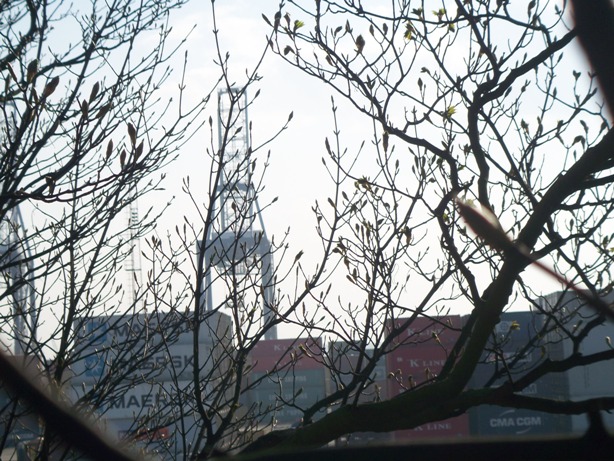
A belated response to the Insitute's remarks on the G20 protests. Firstly, the Institute is certainly right: the interview with David Harvey at Red Pepper is essential reading, but Harvey's argument about the "right to the city" - "in the last 30 years an immense amount of the capital surplus has been absorbed into urbanisation: urban restructuring, expansion and speculation. Every city I go to is a huge building site for capitalist surplus absorption" - make a case for something like a systematic campaign against the London 2012 Olympics rather than the inchoate petitions of last week. I maintain that sabotaging the 2012 PR/ development programme is eminently realistic, in part because any campaign could draw upon a sense of discontent that spreads far beyond the regular constintuencies of opposition to capital, yet this struggle inevitably engage issues of development, about who owns the city and what use it can be put to.
A word of clarification. I didn't privilege the factory occupations over the G20 because they involved labour, but because the occupation strategy has a potential to move beyond the logic of protest. Where protest by its very nature awaits recognition from a big Daddy Other that it, in an obvious Hegelian reversal, grants recognition to, the occupation can refuse recognition not only of the big Other, but also of the system of property that it represents. The occupation seizes space and forces power to act if it wants to reclaim it.
Naturally, I wholeheartedly endorse Savonarola's remarks on trade unions. It's difficult to see how even extremely limited reformist goals could be achieved via political parties, but unions have the required "transversality" to be effective. This would of course require a change in orientation, strategy and thinking, however since, even after thirty years of Post-Fordism, unions remain fixated on Fordist objectives and methodologies. My experience of union meetings though is that there is a vast reservoir of libido waiting to be tapped; at meetings, there was an animated disaffection with auditing and new bureaucracy which immediately dissipated when the 'official' agenda - pay and strikes - was dutifully returned to.
New forms of industrial action need to be instituted against managerialism. For instance, in the case of teachers and lecturers, the tactic of strikes (or even of marking bans) should be abandoned, because they only hurt students and members (at the college where I used to work, one-day strikes were pretty much welcomed by management because they saved on the wage bill whilst causing negligible disruption to the college). What is needed is the strategic withdrawal of forms of labour which will only be noticed by management: all of the machineries of self-surveillance that have no effect whatsoever on the delivery of education, but which managerialism could not exist without. Instead of the gestural, spectacular politics around (noble) causes like Palestine, it's time that teaching unions got far more immanent, and take the opportunity opened up the crisis - their crisis, our opportunity, as Harvey rightly characterises it - to begin to rid public services of business ontology. (When even businesses can't be run as businesses, why should public services?)
Containers and their drivers
Harvey's comments on containerisation, echoed and expanded by No Useless Leniency, have a special piquancy for me now that we live in such close proximity to one of the largest container ports in Europe. The fact that one of one of the "exposed nerve cables of global capital" (as Scanshifts put it) should be here, in the town that MR James used as the setting for "Oh Whistle And I'll Come To You My Lad", and next to the Zone-like Landguard common, with its abandoned fort and pillboxes, makes for a cybergothic incongruity. Seen from the town, the port's cranes tower above the Victorian resort like H G Wells' Martian Tripods. Approached from Trimley marshes, the cranes loom over the countryside like gleaming cybernetic dinosaurs erupting out of a Constable landscape. The immensity of the port's "unvisited vastness" is not capturable in any photograph.
There's an eerie sense of silence about the port that has nothing to do with actual noise levels. What's missing are the traces of any human activity. Watching the container lorries and the ships do their work, or surveying the containers themselves, the metal boxes racked up like a materialised version of the bar charts in Gibson's cyberspace, their names ringing with a certain transnational, blank, Ballardian poetry - Maersk Sealand, Hanjin, K-line - one never has any sense of human presence. I'm reminded instead of the mute alien efficiency of the pod distribution site in Philip Kaufman's 1978 version of Invasion Of The Body Snatchers. The contrast between the container port, in which humans are invisible connectors between automated systems, and the spectacular clamour of the London protests (and indeed of the old London docks which the port of Felixstowe effectively replaced) tells us a great deal about the shifts of capital and labour in the last forty years.
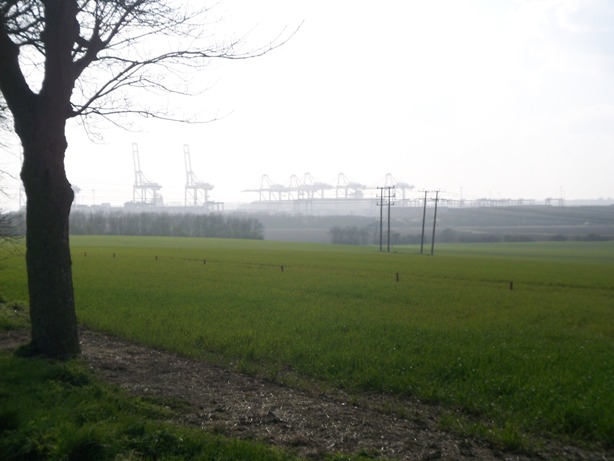
The spectral cranes of Felixstowe port, as seen from Trimley Marshes
As Ben mentions, containerisation famously features in the second season of The Wire (which, I confess, I still haven't seen), but containers are also central to one of the most eerie scenes in I, Robot. The herding of decommissioned robots into containers is a poigant image of the obsolescence of labour, taking place in one of the very sites - a container park - which has made that obsolescence possible.
April 09, 2009
Upcoming
1. 23rd April - Zer0 book launch
2. APRIL 28TH 2009
ON/OFF: MARK STEWART
POP GROUP TO MAFFIA
Dir. Toni Schifer 2009
Location:
Genesis Cinema, 93-95 Mile End road, E1 4UJ, LONDON
time: 19h
Party feat. DJs Adrian Sherwood,The Bug, Toni Schifer & Russell Haswell:
The Rhythm Factory at 16-18, Whitechapel Road, E1 1EW, LONDON
The East End Film Festival is proud to announce the premiere of "ON/OFF: Mark Stewart - Pop Group to Maffia" Directed by Toni Schifer, (Crippled Dick Hot Wax, Monitor Pop), this documentary gives us a unique insight into one of the most innovative and inspirational artists of the last thirty years. Exclusive interviews and footage of Mark travelling and performing as well as interviews with those who have worked with him, (inc. Gareth Sager, Adrian Sherwood, Keith Leblanc,Doug Wimbish, Skip McDonald, Daniel Miller etc.), and those who have been inspired by him, (inc. Nick Cave, Massive Attack). This means we finally get a chance to learn about this true outsider from the regular music industry.
The screening will be followed by a Q&A with Mark Stewart and Toni Schifer conducted by Mark Fisher, (K-Punk, The Wire). Afterwards Adrian Sherwood, The Bug, Russell Haswell and Toni Schifer will DJ as well as some other musical treats to be confirmed.
Tickets cost £10, but you can buy a joint tickt for both events for
£15. People who have attended the screning, or have these tickets, are given
priority to go to the party.
'A toxic combination of ideology and terror'
George Monbiot on the bizarre PFI scheme to widen the M25:
- If the government underwrites the scheme, the greater part of the risk will fall on taxpayers, negating the entire rationale of PFI. But, citing higher lending risks during the recession, the banks backing PFI infrastructure projects have increased their margins, in some cases by 500%. The government will lend or promise to lend cheap money to the banks, which will then charge us, through the consortium, stonking rates of interest for the use of our own cash.
Weird enough for you yet? Well, one of the banks reported to be backing the scheme is RBS. The taxpayer now owns 58% of it. This is likely to rise soon to 95%. If the government underwrites the M25 expansion, it will in effect be bailing out RBS twice, then charging itself for the privilege - and for the bankers' fees, including salaries and bonuses. RBS - in other words, you and me - already has £10bn invested in PFI schemes in this country, for which we are paying extravagant rates. If you have come across a state-spending scheme madder than this, please let me know.
Why does this happen? Capitalist realism of course.
- So why doesn't the government just cut out the middleman and fund the project - or a much cheaper version of the project - itself? The old explanation - that PFI allowed it, like Enron, to keep its public liabilities off balance sheet - no longer holds. The government has bowed to the demands of accountants and auditors: from this month onwards, PFI schemes will be counted as public sector debt.
This is something quite different: a toxic combination of ideology and terror. No lesson, however brutal, can divert the government from its central project of propitiating its old adversaries: industrialists and the rightwing press. Gordon Brown will keep feeding the beast, however much this costs. True disciple, he worships still at the altar of market fundamentalism, even when the market no longer exists.
Family values

From Disney Pixar's viral marketing for Wall-E ("talk about realism! Surf over to the News section and you'll find that the manufacturing jobs have been outsourced to India! Oh, and the corporation is petitioning for its own Enron Loophole.")
Gordon Brown"our task today is to bring financial markets into proper alignment with the values held by families and business people across the country."
Badiou, The Century: “It’s very striking to notice that … the family has once more become a consensual and practically unassailable value. The young love the family, in which, moreover, they now dwell until later and later. … The new man primarily stood – if one was progressive – for the escape from family, property and state despotism. Today, it seems that ‘modernization’, as our masters like to call it, amounts to being a good little dad, a good little son, to becoming an efficient employee, enriching oneself as much as possible, and playing at the responsible citizen.”
April 08, 2009
The mythography of the scrounger
An excellent piece on Job Seekers Allowance by Kevin Maguire in the Mirror today. As Owen has been arguing, there is a real opportunity at the moment to undermine the neoliberal mythography of the scrounger (which, as Maguire points out, has been crucial to the attacks both on the unemployed and on immigrants). The alarming decline of JSA in real terms under Blair and Brown also underlines the way in which attacks on welfare that would not have been possible at the height of Thatcherism go unremarked under New Labour:
- This recession is exploding the myth that benefit claimants live a life of Riley.
TUC chief Brendan Barber speaks of how sacked pin-striped bankers are horrified at how little money they get on the dole.
Once they smugly thought scroungers signed on but now they realise it's no bed of roses on state support, observed Barber when I bumped into him.
The Government trumpeted an inflation-beating 5.2% rise tomorrow in the Jobseeker's Allowance. Unfortunately 5.2% of very little is only £3.80.
JSA will still be a measly £64.30 per week if you're over 25, £50.95 if younger.
.... Britain's another country to the mythical welfare paradise of deluded right-wingers who play for cheap votes by bashing claimants.
We're near the bottom of European unemployment benefit rates.
If JSA had kept pace with earnings over the past 30 years, it would be £110 per week.
Liberal Democrat frontbencher Steve Webb calculates the dole equalled 17% of average earnings in the Thatcher recession of the 80s.
During the John Major Tory recession of the 90s, it had fallen to 14%.
And in the global financial recession of Gordon Brown's Premiership, it has slumped to 11%.
April 02, 2009
Beyond the spectacle of politics

I certainly hope that Owen is right and that the elements at yesterday's anti-G20 protests can combine into a combustible new left. But it's significant, that for me the only potentially political strategy - the factory occupation in Enfield - is happening far away from the spectacle of politics that went on in the City. Surely Lenin's scepticism is justfied:
- I'm still not clear on what the strategy is behind these mini-spectacles. It's great to see thousands of people turn out to protest against capitalism, despite all the media hysteria and off-putting threats from the police. We need far bigger protests in the future, ideally coinciding with a general strike or something. But it seems as if the idea at the moment is to have a carnivalesque parade, wind up in one spot and get penned in only to have the police mess with you if you try to have a drink or some weed. I don't want to be a negative nelly, but that's not reclaiming the streets, it's getting owned by the cops.
At the moment, it is the exorbitant nature of the demands and the fact that they are still directed at a Bad Father who cannot grant them that is a large part of the problem. There has to be a determinate goal, a set of demands that could in principle be met. But there also has to be a political subjectivity which has what Peter Hallward calls practical sufficiency in itself, which did not require some Master to act on its demands for it. Stop The War has concrete demands, but if there is any movement which has demonstrated the tragic impotence of mass protest of this type this decade, it is the anti-Iraq war struggle. Millions of people march in London to no effect whatsoever. The war is a total failure, yet still the anti-war effort is not capable of stopping it. Partly it is its inability to act on its own demands, to seize ground without the permisison of the Masters, that has meant that the Stop The War movement has not managed to convert discontent into an effective political subjectivity. The climate change protest, meanwhile, is largely meaningless, since it is a protest that everyone can agree with, and therefore has no potential to generate political antagonism - who is in favour of climate change? The factory occupation, by contrast, at least has the potential to move beyond the model of protest towards some sort of direct action by workers which can create an effective antagonism over issues of ownership, control and property.
Time to withdraw from the feelgood simulation of politics. Time to give up the gratification of displaying wounds inflicted by the police as signs of grace, evidence that we are on the side of the Good. Time to relinquish the easy jouissance of impotent acting-out. Time to face the fact that organising marches isn't the same as political organisation. Neoliberalism didn't protest to achieve its hegemony; it organised and co-ordinated. This is a moment of massive oppurtunity. Neoliberalism is finished, but it survives in an undead form because its assumptions and defaults still condition the political-economic landscape. Capitalist realism is far from dead, however - and it's surely clearly that it certainly won't be destroyed by an 'anti-capitalist' spectacular hysteria (indeed this form of anti-capitalism could be seen as an integral part of the capitalist realist system). It's time to think, not in order to finesse some grand philosophical system, but with the goal of identifying what new forms of organisation can succeed in these conditions. Time to give up on the romance of a politics of failure and plan to win.
